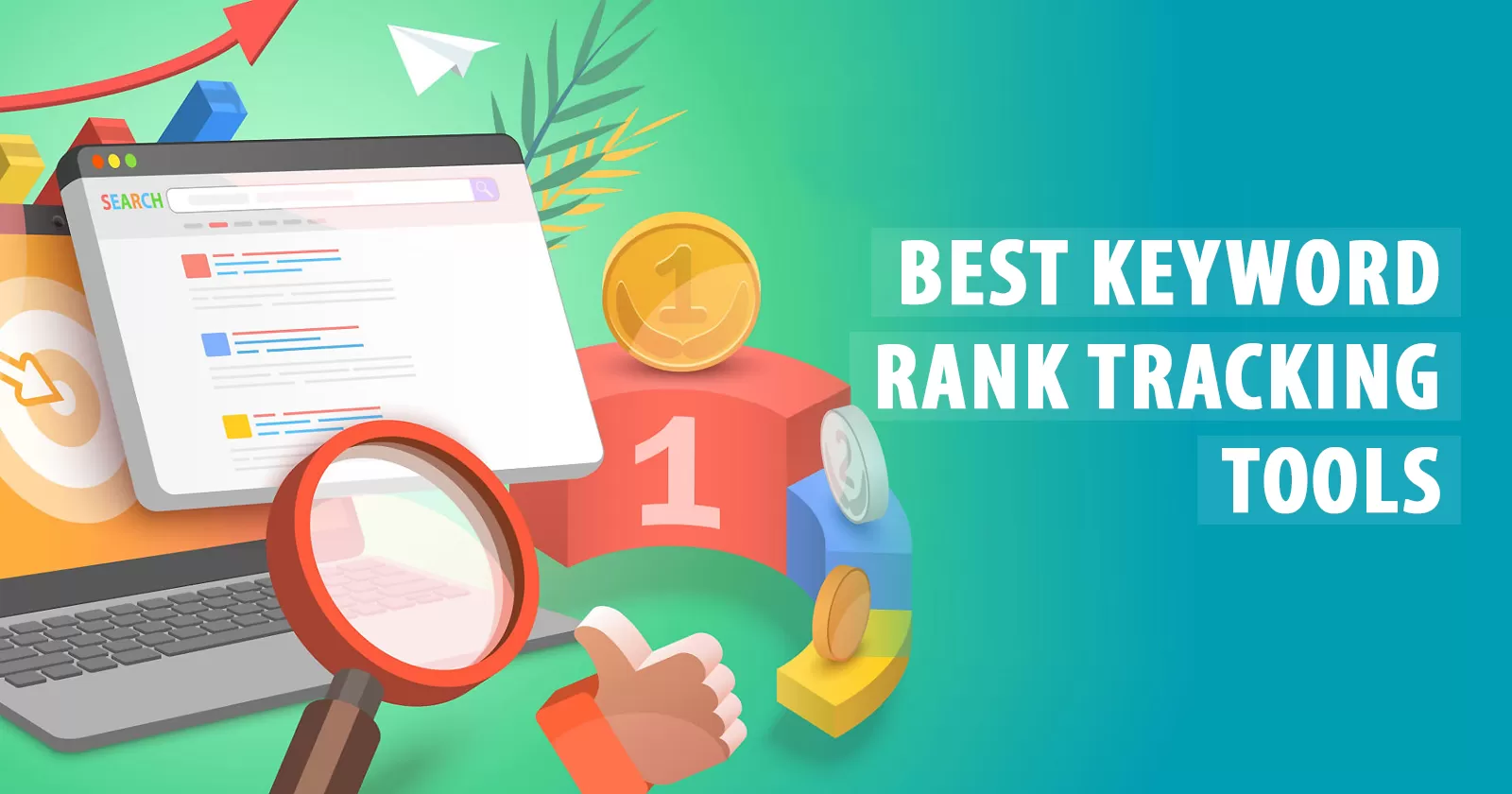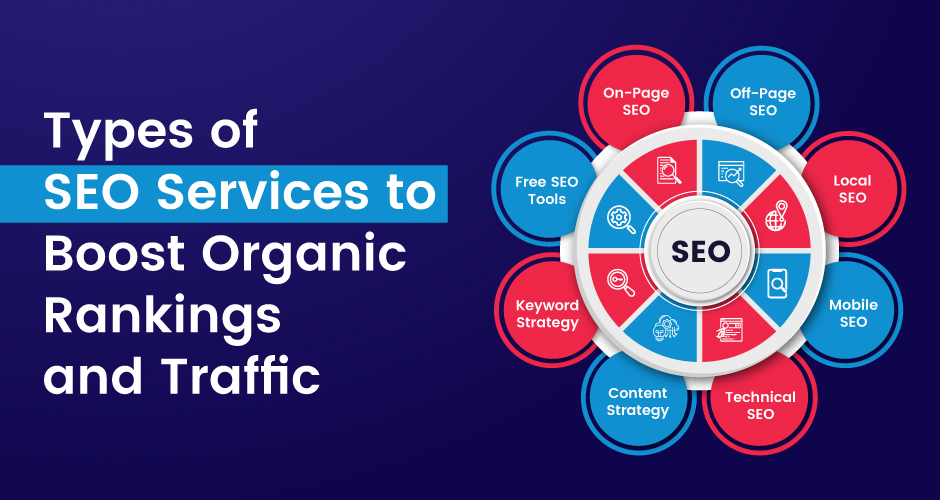
Google Keyword Planner is a powerful tool that plays a pivotal role in optimizing your website for search engines. SEO (Search Engine Optimization) is crucial for businesses to enhance their online visibility and attract potential customers. By leveraging Google Keyword Planner, you can uncover valuable insights into the specific keywords and phrases that your target audience is using to search for products or services. This free tool from Google offers an array of benefits for refining your SEO strategy.
Why You Should Care About Google Keyword Planner
What is Google Keyword Planner?
Google Keyword Planner is a free tool provided by Google that helps you discover relevant keywords for your business. It provides data on search volume, competition, and suggested bid prices for advertising on Google Ads.

How Does It Help with SEO?
SEO stands for Search Engine Optimization, which refers to the practice of improving your website’s visibility on search engines like Google. By understanding the keywords that people are searching for, you can optimize your website content to rank higher in search results.
The Importance of SEO for Businesses
SEO is not just about ranking higher on search engines; it’s about driving targeted traffic to your website and converting them into customers. Here are some key reasons why SEO is important for businesses:
- Enhancing online visibility and brand awareness: When your website appears on the first page of search results, it increases your brand’s visibility and credibility.
- Driving organic traffic and potential leads: Organic traffic refers to visitors who find your website through unpaid search results. These visitors are more likely to be interested in your products or services, making them potential leads.
The Benefits of Using Google Keyword Planner for SEO
Google Keyword Planner provides valuable insights that can help you optimize your website for search engines. Here’s how it can benefit your SEO efforts:
- Access to valuable keyword data for informed decision-making: With Google Keyword Planner, you can discover new keywords related to your business and see important metrics like search volume and competition. This data allows you to make informed decisions about which keywords to target in your SEO strategy.
- Refining content strategies to align with search intent: Understanding the intent behind a user’s search query is crucial for creating relevant content. Google Keyword Planner can help you identify the search intent behind specific keywords, allowing you to tailor your content to meet the needs of your target audience.
By understanding the significance of Google Keyword Planner and its impact on SEO, you can effectively tailor your digital marketing efforts to meet the needs of your target audience, ultimately leading to improved search rankings and increased website traffic.
Understanding Google Keyword Planner and Its Role in SEO
Google Keyword Planner is a powerful tool that plays a crucial role in optimizing your website for search engines. By conducting keyword research, you can identify the most relevant and valuable keywords to target in your SEO strategy. Here’s a closer look at the definition, purpose, and significance of Google Keyword Planner in the realm of SEO:
Definition and Purpose of Google Keyword Planner
Google Keyword Planner is a free tool provided by Google Ads that allows you to explore potential keywords for your website or advertising campaigns. It provides valuable insights into search volumes, competition levels, and bid estimates for specific keywords. This information helps you make informed decisions about which keywords to target and how to allocate your resources effectively.
How Google Keyword Planner Helps in SEO Strategy
Keyword research is an essential component of any successful SEO strategy, and Google Keyword Planner simplifies this process. With its comprehensive database of search data, it enables you to:
- Discover Relevant Keywords: By entering a seed keyword or URL related to your industry, Google Keyword Planner generates a list of potential keywords based on user search queries. This feature helps you uncover new keyword opportunities that may be relevant to your business.
- Understand Search Volume: The tool provides insights into the average monthly search volumes for specific keywords. This data allows you to prioritize keywords based on their popularity and potential reach.
- Analyze Competition Levels: Google Keyword Planner also offers information about how competitive each keyword is in terms of bidding prices and advertiser competition. This knowledge helps you gauge the difficulty of ranking for certain keywords.
Significance of Keyword Research for SEO Purposes
Keyword research forms the foundation of any successful SEO campaign. Here’s why it’s crucial for improving your website’s visibility:
- Targeted Traffic: By identifying the right keywords, you can attract highly relevant traffic to your website. Targeting specific keywords ensures that your content aligns with the intent of search engine users, increasing the likelihood of conversions and engagement.
- Improved Rankings: By optimizing your website for keywords with high search volumes and low competition, you can enhance your chances of ranking higher in search engine result pages (SERPs). This increased visibility drives organic traffic to your site.
- Content Optimization: Keyword research also helps you understand the language and phrases your target audience uses when searching for information. This knowledge allows you to create relevant and compelling content that aligns with their needs and interests.
Google Keyword Planner is a valuable tool that helps you identify relevant keywords, understand their search volumes, and analyze competition levels. By leveraging this tool effectively, you can optimize your SEO strategy, attract targeted traffic, improve rankings, and create content that resonates with your audience’s search intent.
Getting Started: Setting up Your Google Ads Account for Access to Keyword Planner
To begin harnessing the power of Google Keyword Planner for your SEO strategy, you first need to set up your Google Ads account. Here are the essential steps to get started:
1. Creating a Google Ads Account
Navigate to the Google Ads website and click on “Start Now” to begin the account creation process. You will need to provide basic information about your business and create an ad campaign.
2. Linking Google Ads with Keyword Planner
Once your Google Ads account is set up, you can access the Keyword Planner by navigating to the “Tools & Settings” menu and selecting “Keyword Planner”. If it’s your first time accessing the tool, you may be prompted to link your Google Ads account with Keyword Planner.
3. Understanding the Relationship
The availability of Google Keyword Planner is closely tied to having an active Google Ads account. This integration allows you to seamlessly transition from keyword research to creating targeted ad campaigns.
4. Role of SEM in Online Advertising
Search Engine Marketing (SEM) plays a pivotal role in online advertising by enabling businesses to display ads in search engine results pages. It encompasses both organic search engine optimization (SEO) and paid advertising through platforms like Google Ads.
By setting up and linking your Google Ads account with Keyword Planner, you gain access to a powerful tool that can significantly enhance your SEO efforts.
Using the Key Features of Google Keyword Planner for Effective SEO Strategies
The Google Keyword Planner has several powerful features that can improve your SEO strategies. It helps you find new keywords, understand search volumes, and organize keywords effectively in ad groups.
1. Find New Keywords
The “Find New Keywords” feature is a valuable tool for generating fresh and relevant search terms to expand your keyword list. By entering seed keywords or a URL, you can uncover a wide array of related keywords that are potentially valuable for your SEO efforts.
Strategies for expanding your keyword list with the help of this tool:
- Start with broad seed keywords related to your industry or niche.
- Use the “Your product or service” field to enter relevant terms and phrases to generate keyword ideas.
- Analyze the keyword suggestions to identify long-tail keywords and specific variations that align with your content and target audience.
2. Understand Search Volume
Understanding search volume data is crucial for prioritizing keywords in your SEO strategy. The “Understand Search Volume” feature provides valuable insights into the average monthly search volumes for specific keywords, helping you gauge their potential impact.
How to interpret the forecast metrics provided by the planner:
- Pay attention to the average monthly searches to identify high-volume keywords with significant search demand.
- Evaluate the competition level and suggested bid range to understand the competitiveness of specific keywords.
- Consider the forecasted metrics when planning your content strategy and targeting keywords with optimal search volumes and competition levels.
3. Organize Keywords into Ad Groups
Effective organization of keywords within ad groups is essential for maximizing their impact in SEO campaigns. This feature allows you to structure your keyword lists efficiently, aligning them with specific ad groups for targeted visibility.
Best practices for structuring your keywords effectively within ad groups:
- Group related keywords together based on common themes or topics to streamline your ad campaigns.
- Create ad groups that reflect the structure of your website or landing pages, ensuring relevance between keywords and ad content.
- Monitor the performance of different ad groups and make adjustments based on their effectiveness in driving traffic and conversions.
By using these key features of Google Keyword Planner, you can strengthen your SEO strategies and improve the visibility of your website in search results.
Advanced Techniques with Google Keyword Planner: Uncovering Hidden Opportunities
Google Keyword Planner is a powerful tool that goes beyond basic keyword research. By delving into its advanced techniques and features, you can uncover hidden opportunities to optimize your SEO strategy and stay ahead of the competition. In this section, we will explore two key aspects: advanced filtering options and avoiding keyword cannibalization.
Exploring Advanced Filtering Options for More Targeted Keyword Suggestions
One of the most valuable features of Google Keyword Planner is its advanced filtering options. These filters allow you to refine your keyword suggestions based on specific criteria, ensuring that you find the most relevant and targeted keywords for your SEO efforts. Here are some advanced filtering options worth exploring:
- Keyword Filters: You can use filters to include or exclude certain terms or phrases from your keyword suggestions. For example, you can exclude brand names or specific words that are not relevant to your business.
- Search Volume Filters: By setting search volume filters, you can narrow down your keyword suggestions to those with a minimum or maximum search volume. This helps you focus on keywords that have a higher potential for driving traffic to your website.
- Competition Filters: If you’re looking to target keywords with lower competition, you can use the competition filter to exclude highly competitive terms. This allows you to find keywords that may be easier to rank for in organic search results.
- Location Filters: If your business operates in specific geographical locations, you can use location filters to refine your keyword suggestions accordingly. This ensures that you are targeting keywords that are relevant to your target audience in specific regions.
By using these advanced filtering options, you can generate more targeted keyword suggestions that align with your business goals and audience preferences.
The Concept of ‘Keyword Cannibalization’ and How to Avoid It Using the Planner’s Data
Keyword cannibalization occurs when multiple pages on your website target the same keyword or set of keywords. This can confuse search engines and dilute the visibility and rankings of your web pages. Google Keyword Planner can help you identify instances of keyword cannibalization and take steps to avoid it. Here’s how:
- Analyze Search Volume: When conducting keyword research in Google Keyword Planner, pay attention to the search volume data for each keyword. If you notice that multiple pages on your website are targeting keywords with similar or overlapping search volumes, it may be an indication of keyword cannibalization.
- Review Keyword Metrics: The planner provides important metrics such as average monthly searches and competition level for each keyword. By comparing these metrics across different pages targeting the same keyword, you can identify potential instances of cannibalization.
- Optimize Content: Once you have identified instances of keyword cannibalization, take steps to optimize your content. You can either consolidate similar pages targeting the same keyword into a single, comprehensive page or differentiate the content so that each page targets a unique set of keywords.
By leveraging the data and insights provided by Google Keyword Planner, you can proactively address keyword cannibalization issues and ensure that your web pages are optimized for maximum visibility and rankings.
Leveraging Google Keyword Planner for Both SEO and PPC Success
Google Keyword Planner is not only a valuable tool for SEO purposes but also for pay-per-click (PPC) advertising. By using Google Keyword Planner effectively, you can improve both your organic and paid search strategies, ensuring maximum visibility and targeted advertising. Here are some key benefits and tips for using Google Keyword Planner effectively in both SEO and PPC strategies:
Benefits of using Google Keyword Planner in synergy with both organic and paid search efforts
- Keyword Research: The foundation of any successful SEO or PPC campaign is thorough keyword research. Google Keyword Planner allows you to discover relevant keywords that your target audience is searching for. By identifying high-volume and low-competition keywords, you can tailor your content and ad campaigns to reach the right audience.
- Budget Optimization: With the help of Google Keyword Planner, you can estimate the search volumes and costs associated with specific keywords. This information enables you to optimize your budget by focusing on keywords that have a higher potential for conversions. By aligning your SEO and PPC strategies based on keyword data, you can allocate your resources more efficiently.
- Data-Driven Decision Making: Google Keyword Planner provides valuable insights into search trends, competition levels, and user behavior. By analyzing this data, you can make informed decisions about which keywords to target and how to refine your SEO and PPC strategies. This data-driven approach ensures that your efforts align with the changing dynamics of the search landscape.
Tips for balancing SEO and PPC strategies using the insights from the tool
- Identify Overlapping Keywords: Use Google Keyword Planner to identify overlapping keywords between your organic and paid search efforts. This allows you to prioritize these keywords in your overall strategy and avoid duplicating efforts or bidding against yourself in PPC campaigns.
- Refine Ad Copy with Organic Data: Analyze the performance of your organic search listings for specific keywords using Google Keyword Planner. This data can help you refine your ad copy for PPC campaigns, ensuring that your messaging is aligned with the intent of users searching for those keywords.
- Optimize Landing Pages: Google Keyword Planner provides insights into the search volumes of specific keywords. Use this information to optimize your landing pages by incorporating relevant keywords and creating content that aligns with user search queries. By optimizing both your organic content and PPC landing pages, you can enhance the overall user experience and drive higher conversion rates.
- Monitor Performance and Iterate: Continuously monitor the performance of your SEO and PPC campaigns using Google Keyword Planner. Analyze the data provided by the tool to identify opportunities for improvement, such as targeting new keywords or refining existing keyword strategies. Regularly iterate on your SEO and PPC efforts based on the insights gained from Google Keyword Planner.
By leveraging Google Keyword Planner for both SEO and PPC success, you can ensure a comprehensive approach to your online marketing efforts. The tool’s valuable insights enable you to optimize your keyword selection, refine your ad campaigns, and make data-driven decisions that lead to improved search visibility and targeted advertising. Start leveraging the power of Google Keyword Planner today to boost the effectiveness of your SEO and PPC strategies.
The Future of Keyword Research with the Google Planner Tool
As the digital landscape continues to evolve, so does the role of keyword research in SEO. With changing search trends and algorithms, it is important to stay ahead of the game and adapt your keyword targeting strategies. The Google Keyword Planner tool can play a crucial role in this process. In this section, we will explore the evolving landscape of keyword research and how the Google Planner tool can help you stay on top of these changes.
Evolving Role of Keyword Research in SEO
Keyword research has always been a foundational aspect of SEO. It helps you understand what your target audience is searching for and allows you to optimize your content accordingly. However, as search engines become more sophisticated, keyword research is no longer just about finding specific keywords to target. It now involves understanding user intent and providing relevant and valuable content.
With advancements in natural language processing and machine learning, search engines are becoming better at understanding context and semantic meaning. This means that traditional keyword targeting is no longer sufficient. Instead, it is important to focus on creating comprehensive and authoritative content that addresses the needs of your target audience.
Impact of Semantic Search on Traditional Keyword Targeting
Semantic search refers to the ability of search engines to understand the meaning behind a query rather than just matching keywords. This shift in search technology has a significant impact on traditional keyword targeting strategies. Here’s how:
- Contextual Relevance: Search engines now consider the context in which a keyword appears within a piece of content. This means that using keywords naturally and providing relevant information in your content is more important than simply stuffing keywords.
- User Intent: Understanding user intent has become crucial for effective keyword targeting. Instead of focusing solely on specific keywords, it is important to consider the underlying intent behind a search query. This allows you to create content that directly addresses the needs of your target audience.
- Long-tail Keywords: With semantic search, long-tail keywords are gaining importance. These are more specific and detailed search queries that indicate a higher level of user intent. By targeting long-tail keywords, you can attract highly motivated and relevant traffic to your website.
Leveraging the Google Planner Tool for Future Success
The Google Keyword Planner tool can help you navigate these changes and adapt your keyword research strategies accordingly. Here’s how you can leverage the tool for future success:
- Explore Related Topics: Use the “Discover New Keywords” feature in the Google Planner tool to explore related topics and identify broader themes that align with your target audience’s interests. This will help you create comprehensive content that covers a range of relevant keywords.
- Analyze Search Volume Trends: Pay attention to search volume trends provided by the Google Planner tool. This will help you identify emerging keywords and topics that are gaining popularity among your target audience. By staying on top of these trends, you can create timely and relevant content.
- Refine Your Targeting: Use the filtering options in the Google Planner tool to refine your list of keywords. Consider factors such as search volume, competition, and relevance to ensure that you are targeting the most valuable keywords for your SEO efforts.
By embracing the evolving landscape of keyword research and utilizing the features of the Google Planner tool, you can position yourself for future success in SEO. Remember, it is not just about targeting specific keywords anymore; it’s about understanding user intent, providing valuable content, and staying ahead of changing search trends.
Conclusion
The value of Google Keyword Planner goes beyond just finding keywords. It’s a powerful tool that can help you create an effective SEO and PPC strategy for your target audience. By using the insights from this tool, you can improve your search visibility and make your advertising more effective.
As digital marketing continues to change, it’s important to use Google Keyword Planner. It can help you find valuable keywords and predict how well they’ll perform. This knowledge will give you an edge in both SEO and PPC advertising.
We encourage you to use this free tool to improve your online presence and connect with your audience. By embracing Google Keyword Planner, you’ll be able to discover new opportunities, optimize your keyword targeting, and achieve real results in the ever-changing world of digital marketing.
So start using Google Keyword Planner today and see how it can transform your online efforts.
Remember, success in the digital world starts with using the right tools. With Google Keyword Planner, you have what you need to stand out and succeed in the competitive online market.
FAQs (Frequently Asked Questions)
What is the importance of SEO for businesses?
SEO (Search Engine Optimization) is crucial for businesses as it helps improve their online visibility and ranking on search engine results pages. This, in turn, drives organic traffic to their websites, increases brand awareness, and ultimately leads to higher conversion rates and sales.
How does Google Keyword Planner help in SEO strategy with its keyword research features?
Google Keyword Planner assists in SEO strategy by providing valuable insights into the search behavior of users. It helps identify relevant keywords and their search volumes, enabling businesses to optimize their website content and targeting strategies to align with user intent and improve their search engine rankings.
What are the steps to create and link a Google Ads account with Google Keyword Planner?
To access Google Keyword Planner, one needs to create a Google Ads account and link it to the planner. The process involves signing up for Google Ads, setting up an advertising campaign (which can be paused immediately), and then accessing the Keyword Planner tool from the Tools menu within the Google Ads dashboard.
How can ‘Discover New Keywords’ feature in Google Keyword Planner be used effectively?
The ‘Discover New Keywords’ feature in Google Keyword Planner can be used to generate fresh and relevant search terms by entering seed keywords or a URL. It helps in expanding the keyword list by providing new keyword ideas based on user input, which can then be used to enhance SEO strategies.
What are some advanced filtering options available in Google Keyword Planner for more targeted keyword suggestions?
Google Keyword Planner offers advanced filtering options such as keyword inclusion/exclusion filters, average monthly searches range, competition level, and more. These filters allow users to refine their keyword suggestions based on specific criteria, helping them uncover hidden opportunities for SEO and PPC campaigns.
How can Google Keyword Planner be leveraged for both SEO and PPC success?
Google Keyword Planner can be utilized for both organic (SEO) and paid (PPC) search efforts by providing valuable keyword insights that are essential for optimizing website content as well as creating effective paid advertising campaigns. Balancing both strategies using the insights from the tool can lead to improved search visibility and targeted advertising.





